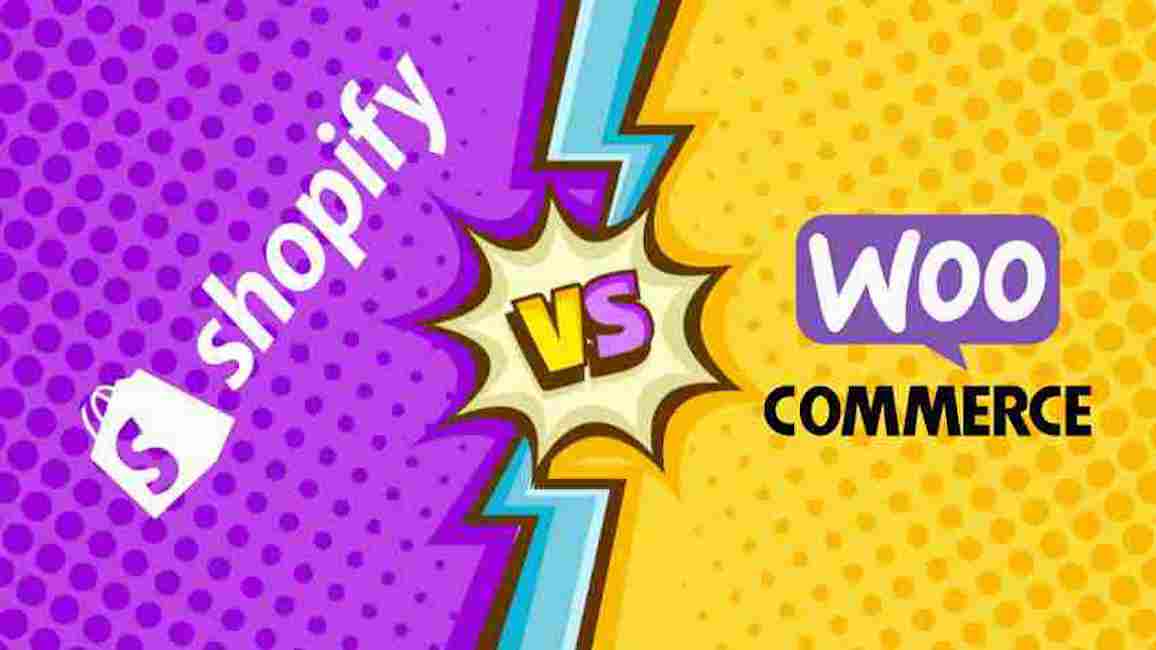When it comes to launching an eCommerce store, choosing the right platform is crucial for your business’s success. Two of the most popular options available are WordPress and Shopify. Each platform has its own set of advantages and disadvantages, making the decision a challenging one. In this article, we’ll compare WordPress and Shopify based on various factors to help you determine which is best for your eCommerce venture.
Flexibility and Customization
WordPress (Pros):
One of the standout features of WordPress is its unmatched flexibility and customization options. With thousands of themes and plugins available, you can tailor your eCommerce site to your exact specifications. This level of customization is ideal for businesses with unique branding or specific design requirements.
Shopify (Cons):
Shopify, while user-friendly, is more limited in terms of customization. While you can still customize your store to a degree, you might find it challenging to implement highly specialized features or design elements. Shopify is primarily designed for eCommerce, so it excels in this area but may lack the versatility of WordPress.
Ease of Use
Shopify (Pros):
Shopify is renowned for its user-friendly interface and easy setup process. You don’t need extensive technical knowledge to get your eCommerce store up and running. The guided setup and intuitive dashboard make it an excellent choice for beginners.
WordPress (Cons):
WordPress, on the other hand, has a steeper learning curve, especially for those new to website development. Setting up an eCommerce store on WordPress requires more effort and familiarity with the platform. However, its flexibility compensates for the initial learning curve.
Hosting and Security
Shopify (Pros):
Shopify offers a hassle-free hosting solution, taking care of server management and security. Your online store will benefit from Shopify’s robust security measures and uptime guarantees. This hands-off approach is ideal for those who don’t want to worry about technical aspects.
WordPress (Cons):
With WordPress, you’re responsible for finding and managing your own hosting. While this grants more control, it also means you need to address security concerns, perform regular backups, and ensure your website remains online. Security is a significant consideration when choosing WordPress.
SEO-Friendliness
WordPress (Pros):
WordPress boasts excellent SEO capabilities, thanks to various SEO plugins and tools available. You have full control over optimizing your website for search engines, making it easier to improve your online visibility.
Shopify (Cons):
Shopify also offers SEO features, but they may not be as robust as those in WordPress. You might find it more challenging to implement advanced SEO strategies on Shopify, potentially impacting your search engine rankings.
Cost Considerations
WordPress (Pros):
WordPress itself is open-source and free to use, making it a cost-effective choice. You can find free themes and plugins to build your eCommerce site, reducing initial expenses.
Shopify(cons)
Shopify operates on a subscription-based model, with monthly fees based on your chosen plan. While the ease of use and included hosting are convenient, these costs can add up over time, especially for small businesses.
Scalability
Shopify (Pros):
Shopify is built for scalability, offering various plans to accommodate growing businesses. As your eCommerce store expands, you can easily upgrade your plan to meet increasing demands.
WordPress (Cons):
While WordPress can handle both small and large eCommerce websites, scaling up might require more effort and potentially some technical expertise. You’ll need to ensure your hosting can handle increased traffic and implement necessary optimizations.
Content Management
WordPress (Pros):
WordPress originated as a blogging platform, making it a powerhouse for content management. It excels in creating and managing a blog alongside your eCommerce store. If content marketing is a priority, WordPress has the upper hand.
Shopify (Cons):
While Shopify includes blogging features, they may not be as extensive or user-friendly as WordPress. If your eCommerce store heavily relies on content marketing, this could be a drawback.
Conclusion
In the debate between WordPress and Shopify for eCommerce, there’s no one-size-fits-all answer. Your choice depends on your specific needs and priorities. Here’s a brief summary to help you decide:
– Choose WordPress if you prioritize flexibility, customization, and content management. It’s ideal for businesses with unique branding and those who want full control over their online store. However, be prepared for a steeper learning curve and additional responsibilities regarding hosting and security.
– Opt for Shopify if ease of use, security, and scalability are your top concerns. It’s excellent for beginners and those who want to focus primarily on eCommerce without delving into the technical aspects. Keep in mind the monthly subscription costs and potential limitations in customization.
Ultimately, both platforms can lead to a successful eCommerce venture, but understanding your business’s specific requirements will guide you toward the right choice.

